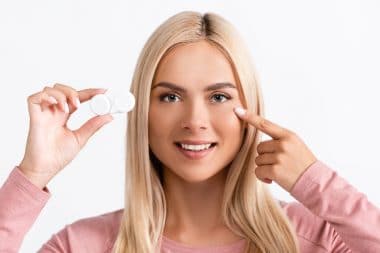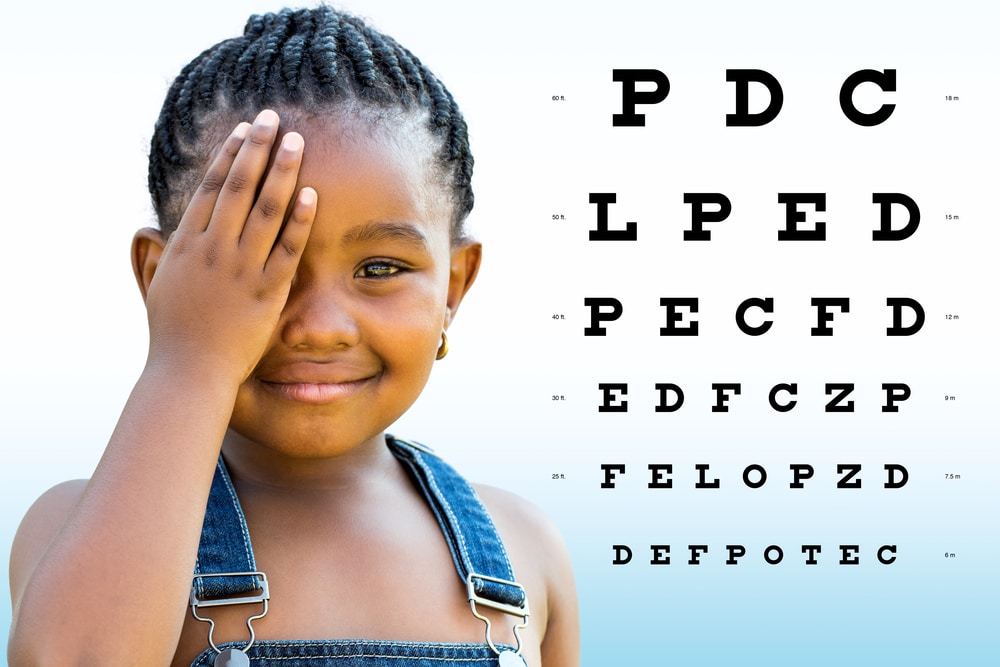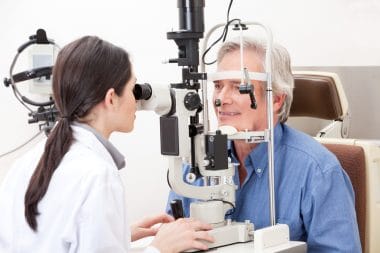Night blindness, also called nyctalopia, is a vision impairment that is usually a symptom from another underlying eye condition. Night blindness does not necessarily cause complete blindness. It just means that you struggle to see or drive when the light is dim. There are lots of things that can cause night blindness. Some are treatable while others aren’t. It depends on what the underlying condition causing the night blindness. Â
Symptoms
The main symptom you will experience is difficulty seeing in the dark. This could be from being outside in the sun and going into a low lighted store, that can cause difficulty in your eyes adjusting. Or you could suffer from difficulty driving at night due to bright headlights, and traffic lights. You could also suffer from headaches, eye pain, nausea, vomiting, blurry or cloudy vision, or sensitivity to light.Â
There are some other indicators that can help you know if you are suffering from night blindness. The first one of course being if you have weak vision in low light. Another could be difficulty adjusting to light levels, whether this is going from extremely bright, to dim or vice versa. Difficulty see during the night. If you experience halos, which are glares from light sources. These halos happen when your eye is unable to focus and process light correctly. Sometimes night blindness can cause you to not be able to see stars at night, or to navigate a dark room.Â
Diagnosis
If you have any of those indicators you will want to call your eye doctor to get an exam. Usually night blindness can be diagnosed with a routine eye exam. Your eye doctor will want to put dilation drops in your eye so they can check the back of your eye for any diseases or conditions. In some cases your doctor may want to take a blood sample to check your vitamin A levels, and your blood glucose levels.Â
Risk FactorsÂ
There are some conditions that usually have night blindness as a symptom. The most common one is nearsightedness. This is when you have difficulty seeing things that are far away.Â
Cataracts which are when the lens of your eye becomes clouded, usually affecting older people, also can have night blindness as a side effect.Â
Retinitis pigmentosa is a genetic condition of the retina. This condition causes vision loss due to the retina cells degenerating over time.Â
Other causes of night blindness are vitamin A deficiency, diabetes, zinc deficiency, complications from Lasik surgery, or glaucoma. Vitamin A deficiency is rare, but can happen when you aren’t getting a nutritious diet daily. Vitamin A deficiency can also occur if you have a pancreatic insufficiency such as cystic fibrosis. Zinc deficiency can cause your vitamin A in your body to not work as it should. Â
Treatment
Depending on what your underlying condition is depends on your treatment. There is treatment if your night blindness is caused by a vitamin A deficiency, nearsightedness, or cataracts.Â
With a vitamin A deficiency you will be instructed to take supplements to increase your levels. You will need to take the supplements however your doctor instructed you to for as long as they think necessary.Â
Being nearsighted means you will need some form of corrective lens, whether this be specific for day time or night time.Â
Cataracts can be taken care of with a simple cataract surgery where the surgeon will replace the foggy lens with an artificial clear lens. After the surgery and recovery time the night blindness should go away completely.Â
Retinitis pigmentosa since it is a genetic condition cannot be treated at this time. If you have been diagnosed with this condition it is best if you don’t drive at night.Â
Night blindness caused by diabetes, can be managed with managing your blood sugar levels. Your doctor will be able to come up with the best treatment for you based on your condition. Â
Prevention
There is no way to prevent night blindness. Since sometimes you cannot prevent eye conditions. To make sure you don’t become vitamin A deficient you can increase foods in your diet that have a lot of vitamin A, like cantaloupes, sweet potatoes, carrots, pumpkins, butternut squash, or mangos. Eating a healthy diet will also help manage your blood sugar to help not develop diabetes, or if you have diabetes keep your symptoms in check. Â
Read More:Â Best Practices For Healthy Eyes
Final Thoughts
If you suffer from night blindness, make sure you get an eye exam since this is usually a symptom from another eye condition. Though it is not actual blindness, it can impair your vision to where it can be dangerous to drive at night. Though not all conditions that cause night blindness can be treated, most can, so looking into treatment options can help make this symptom go away completely. Â
Having trouble seeing when you drive at night? Night Blindness is usually fixable! Learn more here. #HealthStatus
Cataracts which are when the lens of your eye becomes clouded, usually affecting older people, also can have night blindness as a side effect.
Sources:
https://www.webmd.com/eye-health/night-blindness
https://www.medicalnewstoday.com/articles/324004
https://www.healthline.com/health/vision-night-blindness
https://www.opticarevision.com/2021/02/15/what-you-should-know-about-night-blindness-2021/
https://theeyepros.com/can-see-clearly-now-night-gone-top-10-signs-bad-night-vision/









Reply